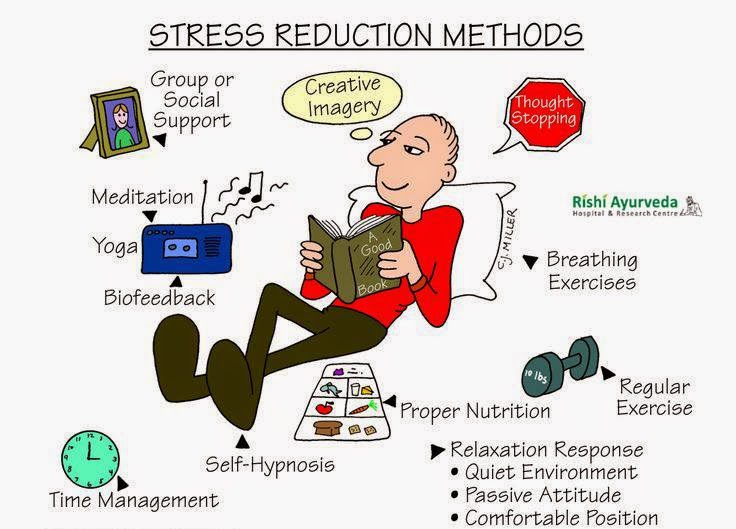Yelling during sex
Why People Scream and Moan During Sex
“Moan or screamer? Well, neither . . . probably more of a moaner . . . I think I have a more guttural grunt when I orgasm . . . but fairly quiet until that point.” —A married woman
“I believe that screams are not genuine. I expect men to express their pleasure only in a few moans.” —A married woman
Many people associate moaning and screaming with pain. Why, then, should people make these noises while experiencing sexual pleasure? Are we not embarrassed to have such sounds coming out of our mouths?
Source: fizkes/Shutterstock
Moans, screams, and noise
“When I have feelings inside of me, they need to get out—making noise is a great way to do that.” —A woman
“I am a restrained woman, and so was my ex-husband—thus, we had complete silence in bed. Now with my new partner, I moan in a low voice, while my partner moans very loudly. I am a bit embarrassed to moan loudly. ” —A divorced woman
The link between such noises and pain is longstanding: According to the Oxford English Dictionary, a moan is “a long, low sound made by a person expressing physical or mental suffering or sexual pleasure”; and to scream is “to make a loud high cry because you are hurt, frightened, or excited.”
These definitions correspond with the characterization of noise as a loud or unpleasant sound that causes a disturbance. Can such sounds be part of enjoyable sex?
How can pain generate sexual pleasure?
“If I'm screaming, it's because my SO and I are having particularly rough and painful (in the good way) sex.” —A woman
Let’s first tackle the conceptual puzzle of how negative experiences, such as moans and screams, can be part of—and even enhance—positive sexual pleasure. Two phenomena are most relevant here: the feasibility of emotional ambivalence and the mechanism of arousal transfer.
In my book, The Arc of Love (2019), I emphasize the ambivalent nature of emotions in general and love in particular. Such ambivalence, which refers to experiencing negative and positive emotions at the same time, is common due to the partial nature of emotions. Emotions are partial in two senses: (a) They are focused on a narrow target, such as one person or very few people, and (b) they express a personal and interested perspective. Accordingly, each (partial) perspective may be appropriate, while no single perspective expresses an overriding emotional perspective. Thus, a widow attending the wedding of her daughter feels joy, but also sadness that her late husband, the father of the bride, is not present. Similarly, a sexual experience can involve both pleasure and suffering expressed in moaning.
Such ambivalence, which refers to experiencing negative and positive emotions at the same time, is common due to the partial nature of emotions. Emotions are partial in two senses: (a) They are focused on a narrow target, such as one person or very few people, and (b) they express a personal and interested perspective. Accordingly, each (partial) perspective may be appropriate, while no single perspective expresses an overriding emotional perspective. Thus, a widow attending the wedding of her daughter feels joy, but also sadness that her late husband, the father of the bride, is not present. Similarly, a sexual experience can involve both pleasure and suffering expressed in moaning.
In arousal transfer, arousal in one situation generates arousal in another. Thus, makeup sex takes place after an unpleasant, heated fight with a partner has created a gulf between the two and threatened the existence of the relationship; makeup sex reestablishes their bond in a very tangible manner. The high arousal state associated with the fight is transferred to a high arousal state during the makeup sex. Likewise, when one partner acts wildly, and even sadistically, the arousal underlying his anger can be transferred into sexual arousal. A subtler manner of increasing sexual arousal is teasing, which involves a gentle and humorous argument (simulating a “fight”) that increases sexual arousal.
The high arousal state associated with the fight is transferred to a high arousal state during the makeup sex. Likewise, when one partner acts wildly, and even sadistically, the arousal underlying his anger can be transferred into sexual arousal. A subtler manner of increasing sexual arousal is teasing, which involves a gentle and humorous argument (simulating a “fight”) that increases sexual arousal.
The arousal transfer can also arise from positive emotions, such as enjoying a good dinner together and then experiencing intense sexual arousal.
Is noise a sexual turn on?
“From beginning to end, I love the sexy voice exchange that whispers and purrs with heavy sighs of intensity and the sweet moaning of pleasure.” —A married woman
“Moaning is a way of reassuring your lover that he or she is pleasing you. You use all of your senses to have sex, and your audial senses should not be ignored! It’s important to make noises of pleasure so your partner isn’t put off thinking the wrong thing by silence. ” —Trina
” —Trina
Moans and screams are types of noise; moans are low noises, whereas screams are loud ones. Noise, which is unwanted sound judged to be unpleasant, loud, or disruptive to hearing, has been described as the price we pay for getting what we want. Moans and screams seem to be types of noise, expressing pain and suffering. Is such noise essential for pleasurable sexual experiences, or is it a price we have to pay for getting sexual satisfaction?
A major benefit of sexual noises is that—if genuine—they demonstrate that the partner is not indifferent; in this sense, any noise is better than complete silence.
Consider the following views of women and men concerning whether sexual noise is a turn on for them (cited in Reddit, e.g., here and here).
“For someone who watches porn on mute, I appreciate a little noise in my own bed so long as it is natural and not forced. I also appreciate feedback and moderate dirty talk.” —A woman
“I like my partner to be silent. How else can they fully focus on doing a good job? ;-)” —A woman
How else can they fully focus on doing a good job? ;-)” —A woman
“My favorite noise that a woman makes in bed is a sudden declaration of "YES!!" As if her team just won a goal.” —A man
“I don't really care much if they're vocal or not. Even if they were vocal, I wouldn't hear it, because I'm probably the most vocal person during sex.” —A woman
“I prefer my partner to be mostly quiet. Noise interrupts my headspace. I loathe talking, especially dirty talk. I need to focus in order to have an orgasm. The occasional moan or sigh is fine.” —A woman
“I'm weirded out by people who don't make any noise during sex. I need some indication that you like what we're doing, c'mon.” —A woman
“I like a moderate amount of noise, also laughter is the best.” —A woman
“I don't mind a little noise, but if it turns into full-blown screaming, I don't think I would respond positively to that.” —A man
“I need noise, I need to hear moans, I need to know I'm doing the right things. ” —A woman
” —A woman
“I'm not turned on by screaming, at all. It's distracting and unnecessary. Noise itself is fine, but I would doubt that anyone has such a strong orgasm that they're screaming.” —A man
“LOVE when my partner moans! I love a guy that makes noise in bed. Silence is strange.” —A woman
“Enough noise to get the mood just right. If he sounds like a buffalo, he gots to go.” —A woman
“Every little involuntary noise she makes when we have sex is solid gold. The more noise the better.” —A man
Most respondents consider the noise of moans and screams to be valuable communication. It seems that for most people, moderate noise is bliss, while complete silence is toxic. When it comes to sex, silence is far from golden.
Are moans and screams genuine?
“I'm dating a half-Japanese model. All good, as you'd expect. Except she hardly does more than sigh when she comes. Is it cultural, or am I, in fact, missing the mark?” —Anonymous man, cited in GQ magazine
We have seen that moderate moans and screams are quite beneficial for enhancing sexual satisfaction. However, are most moans and screams genuine? Apparently not.
However, are most moans and screams genuine? Apparently not.
Gayle Brewer and Colin Hendrie in their study of why women make noises during sex found that 66 percent of the respondents moan just to speed up their partner’s orgasm, while 87 percent moan to pretend they are reaching their peak. Brewer and Hendrie show a dissociation of the timing of women experiencing orgasm and making copulatory vocalizations, indicating that these vocalizations are at least partly under control, thus providing women with an opportunity to manipulate male behavior to their advantage. The study also shows that women moan whenever they are getting bored, tired, or uncomfortable during sex, just so the man gets turned on and climaxes faster. Thus, while female orgasms were most commonly experienced during foreplay, copulatory vocalizations were reported to be made most often before and simultaneously with male ejaculation (Brewer & Hendrie, 2011).
The following are a few examples of perspectives on the genuineness of moans and screams in sex (cited in Reddit).
“Screams are totally awesome, assuming it's natural. Otherwise, it's just fake porn BS.” —A man
“Fake screaming is not fun. Real screaming, where you can hear their most basic, instinctual passion, can be hot." —A man
“I'm not performing or thinking about the noises I make, it just happens.” —A woman
“I feel like screaming does not sound genuine. That is why it is a turnoff.” —A man
“It's hot if I can tell it's genuine, and not too loud.” —A man
People agree concerning the destructive value of faking. Nevertheless, in the above study, 87 percent of women admit that they moan in order to pretend they reach their peak. How can we make sense of this puzzle?
One explanation may be that it is difficult to distinguish between faked and genuine moans—it is somewhat easier in the case of extreme screams (and moans). If we combine this idea with the greater value of noise over silence in the sexual sphere, it seems that faking (moderate) moans can be quite beneficial. Moreover, such moans and screams not only increase the excitement of the partner; they can also increase that of the moaner/screamer. In this sense, they are valuable self-fulfilling prophecies.
Moreover, such moans and screams not only increase the excitement of the partner; they can also increase that of the moaner/screamer. In this sense, they are valuable self-fulfilling prophecies.
Concluding remarks
“I love to vocalize my feelings in the language of love that builds incredible confidence in my lover, praising his touch and performance, while simultaneously heightening my own excitement. And for those out-of-this-world exhilarating emotions that are so intense, I may curse using descriptions only a sailor would use!!!” —A married woman
In profound love, actions speak louder than words, and “well done” is by far better than “well said.” Unlike sex, in profound love, where the heart leads the way, screams, and less so moans, are of lesser weight. Noise is beneficial for sex. Being silent may make your partner wonder whether you enjoy the sex. Although noise is for many people helpful in sex, it is not the case that the more noise you make, the better sex you will have. The right balance is vital here. Too much noise may make your partner question your sincerity; and there are many people who just cannot stand screaming—in bed or anywhere else.
The right balance is vital here. Too much noise may make your partner question your sincerity; and there are many people who just cannot stand screaming—in bed or anywhere else.
Here's Why Some Women Scream During Sex, According To A Sex Expert
Dating
by Griffin Wynne
Santi Nunez
Whether you groan, moan, shout, or Cardi B-style "say your own name during sex," sometimes turning up the heat between the sheets means getting a little noisy. Although (as long as everything is consensual) there are no wrong or right sounds to make as you're getting frisky, if you've ever wondered why some women scream during sex, you're not alone.
"Vocal moans, groans, and screams are all healthy forms of sexual expression," Dominnique Karetsos, resident sex expert at MysteryVibe, tells Elite Daily. "Moaning, screaming, etc., are very normal arousal patterns commonly known as partner interaction arousal. In other words, being turned on by a partner being turned on — like an interactive sexual dance."
In other words, being turned on by a partner being turned on — like an interactive sexual dance."
According to Karetsos, screaming during sex can be a way to interact with your boo as you're getting frisky. If you've never been a "screamer," the idea of "arousal noises" may seem a little #extra, but Karetsos says that making loud sounds during sex can actually be encouraging. In fact, for some people, letting out a howl can make your sex life even better.
Shutterstock"Studies show that people who moan, groan, or scream statistically have greater sexual satisfaction," Karetsos says. "Even though it's not a verbal cue, it is still communication that has positive motivations."
Karetsos shares that ~eroticism~, or stirring up sexy feelings, is an important part of any healthy sexual relationship. Whether you're getting it on with your self or with others, being turned on as you're getting it on makes a big difference. No matter your sexual preferences, screaming during sex can be a way to express your own pleasure. And if you get super turned on by your partner getting super turned on, screaming together may send you both over the edge.
And if you get super turned on by your partner getting super turned on, screaming together may send you both over the edge.
If you're unsure what your sexy screaming sounds like, or if you're nervous about making it sound a certain way, Karetsos attests to the importance of finding your own erotic voice. (I'm picturing a dirty Little Mermaid moment here.) "Remember that everyone has their own erotic voice," Karetsos says. "As partners, sharing different erotic vocal scenarios and techniques can be part of the process." Additionally, if you've never been a "screamer" but you're interested in turning up the volume, Karetsos suggests trying out different sounds. "Experimentation is key," Karetsos says. "There isn’t one 'right way' and you don’t have to only have one sound."
Although watching porn or sexy movies may help you find your sultry voice, Karetsos explains the importance of getting in tune with your own erotic desires — outside of the media. "Eroticism is not a one-size-fits-all," Karetsos says. "Know your own sexual style and remember that it's important to communicate it to your partner — no matter how long you've been together."
"Eroticism is not a one-size-fits-all," Karetsos says. "Know your own sexual style and remember that it's important to communicate it to your partner — no matter how long you've been together."
If you've been sleeping with the same person for a while, you may think you know everything about each other's desires. Although you may be totally in tune, talking about your desires as they arise and actively continuing the conversation can help keep your sex life feeling supportive and sexy. You may have a pretty good thing going now, but there's always room to grow and learn together.
If you're looking to try a new move or if you want to investigate your turn-ons further, Karetsos suggests that you and your partner[s] "integrate eroticism into your conversations" by talking in a positive and non-judgmental way. Opening up about your turn-ons, favorite positions, and preferred ways to get it on can get be a great way to get the erotic ball rolling.
"Different experiences may produce different sounds for you," Karetsos says. "Try out different sounds, not only during partnered sex, but also while you’re masturbating." Although adding a soundtrack to your sex life or investigating what turns you on may sound like a two-player game, getting it on with your bad self can be super enlightening too.
"Try out different sounds, not only during partnered sex, but also while you’re masturbating." Although adding a soundtrack to your sex life or investigating what turns you on may sound like a two-player game, getting it on with your bad self can be super enlightening too.
Of course, if you're going to be trying new things with a partner, Karetsos states the importance of clearly discussing consent and boundaries. "Eroticism should never come at the expense of their partner and their genuine feelings," Karetsos says. "Enjoy letting go, [but] respect your partner's preferred way of showing their turn-on's as well." Although experimenting can be a super sexy way to learn about your body, ensuring that everyone is on the same page is a must before making a move.
No matter what sexy sounds you like to make, being vocal in the bedroom can really pump up the erotic feelings. Although everyone expresses themselves differently, screaming during sex can be a way to express your own pleasure and to communicate with your partner. If you're in the market for some new sexy sounds, try experimenting with new noises as you get it on. As long as everything is consensual, there's no wrong way to have sex, and that is something to scream from the rooftops.
If you're in the market for some new sexy sounds, try experimenting with new noises as you get it on. As long as everything is consensual, there's no wrong way to have sex, and that is something to scream from the rooftops.
why women moan during sex Everyone's attitude to sounds is also different. Someone likes this talent, makes someone laugh, and someone sees insincerity in this. So to make noise or not to make noise in the process of intercourse?
It is believed that women traditionally moan during sex. Male vocalization during sexual intercourse is more often associated with German porn films ("Ya-ya! Fantastic!") and is rather ironic. Men often do not allow themselves to lose control of their emotions. Whereas for a woman, the loss of control - which is what is read behind the sexual moans and screams - is a more natural process. Rapid breathing and groans during sex indicate a special, trance state. In some African tribes, deep breathing was used to go into a deep trance. At the same time, as scientists have found, blood pressure and carbon dioxide levels in the blood decrease, and sensitivity increases, as do sexual experiences. Changes occur in the brain, due to which control over behavior and emotions decreases, a person literally becomes like an animal.
At the same time, as scientists have found, blood pressure and carbon dioxide levels in the blood decrease, and sensitivity increases, as do sexual experiences. Changes occur in the brain, due to which control over behavior and emotions decreases, a person literally becomes like an animal.
Do animals moan during sex?
Speaking of animals. Female baboons begin to make more complex sounds as ovulation approaches. Also, their vocalizations change depending on the rank of the male they mate with. Isn't that what happens to women when they have sex with alpha or beta males? Often "human females" share that they do not always and not with any partner moan during sex or make other sounds. But female macaques use sounds to help their partners get an orgasm.
Why do women moan during sex
The fact that women, like female macaques, influence men's pleasure with their cries and moans, is also confirmed by studies in the field of sex. True, often sounds are made not because of strong euphoria and loss of control over emotions, but as a means of manipulation. According to a study conducted by British scientists, out of 71 women aged 18 to 47 surveyed, 66% made noise during sex in order to speed up their partner's orgasm, and 87% thus sought to increase his self-esteem. Some women also reported vocalizing to relieve boredom, fatigue, or pain/discomfort during sex.
True, often sounds are made not because of strong euphoria and loss of control over emotions, but as a means of manipulation. According to a study conducted by British scientists, out of 71 women aged 18 to 47 surveyed, 66% made noise during sex in order to speed up their partner's orgasm, and 87% thus sought to increase his self-esteem. Some women also reported vocalizing to relieve boredom, fatigue, or pain/discomfort during sex.
Is this why the loud moans of women often seem feigned? If behind the wall someone moans loudly in the middle of the night, this demonstrativeness speaks to many about the desire to show off, to show: everything is fine with me, I have sex. However, men still prefer to believe their partners, considering the sounds during intercourse as signals of the strength of arousal and approaching orgasm. The same British scientists found that men misinterpret orgasms from their partners. Studies involving 85 couples aged 20 to 45 showed that women did not control or play during oral sex, while they faked orgasm more often during vaginal sex. Men, on the other hand, felt the opposite.
Men, on the other hand, felt the opposite.
Is it necessary to moan and scream during sex?
So to scream or not to scream? Some women share that they would like to scream in bed, they are only shy, they are afraid that the neighbors will hear, children or parents are sleeping behind the wall, etc. Of course, often you have to make a discount on housing conditions. But if it is possible to retire to a place where you will not be heard, it is better not to limit yourself in expressing emotions. Sexologists also recommend using sounds not to mislead a partner, thereby hiding their low interest in the process, but rather as a way to educate a partner. That is, to increase and decrease moans, depending on whether the partner is doing something pleasant or not. This is better than leading the process with the tone of a traffic cop: "To the left, to the right, forward, stronger, stop."
Avdotya Razgulyaeva
Sounds of sex: why do people moan, scream and growl in bed
And here are some surprising conclusions.
Share
0In the language of science, the sounds that humans and other mammals make during sexual intercourse are called female copulative vocalizations. There is no male version of the term, since in nature, males are mainly engaged in procreation in silence.
In human society, audio accompaniment to sex is also more often created by girls. But men are not always silent like partisans. Let's figure out what prompts both of them to break the silence in bed and in any other place where passion has overtaken.
An ancient survival instinct speaks in us
Let's return to mammals, or rather, to our relatives, monkeys. Biologists have found that female primates make sounds not at all from pleasure.
Their cries are part of a strategy aimed at the survival of offspring.
The female chimpanzees, who are genetically closest to humans, are the champions of female sexual tricks. They only scream if they are lucky enough to seduce the alpha male. And with low-ranking partners they copulate silently. Chimpanzees behave quietly even when stronger and more respected rivals in the flock roam nearby.
And with low-ranking partners they copulate silently. Chimpanzees behave quietly even when stronger and more respected rivals in the flock roam nearby.
What bonuses do females get from such a strategy? The first is to protect future offspring by advertising to other males a relationship with a tough guy and declaring him the father of their children. The second is to spur male competition and attract new fans. Not the fact that alpha will be able to get pregnant. Enlisting the support of the strongest, they can then quietly conceive from someone simpler. The third - protect themselves from the aggression of other females. After all, competition for a status man among chimpanzees is strong, as in humans.
Similar, though less complex, behavior is seen in other polygamous primates, such as macaques and baboons. In a word, sheer calculation and no passion.
This is how women increase a man's self-esteem and bring his orgasm closer
Contrary to popular belief among young men, a girl's cry in bed is in most cases not an instinctive reaction to an unforgettable vaginal orgasm, but a kind of manipulation (which makes us related to chimpanzees).
More than 90% of men admit that they are turned on by the moans of their partner in bed.
And women, according to polls, are happy to try: 87% of them shout louder to please their beloved and increase his self-esteem. However, this performance does not exclude its own pleasure.
The second common reason for a woman's cry is the desire to bring a man's orgasm closer. 66% of girls admitted that at times they use moaning as a means to speed up the process. The reasons are different: boredom, discomfort, fatigue, pain, the need to sleep before a morning meeting, or thoughts of a hungry cat waiting at home. But do not offend the good guy with the phrase: “Come on, hurry up!”
We follow the movies
Perhaps women would be quieter, and men would not perceive screams as confirmation of their high skill in bed, if not for the movie. Directors use groans in the frame to make sex scenes brighter, to emphasize the moment of orgasm. The same sound technique is used in the production of porn films.
The same sound technique is used in the production of porn films.
Scientists have not yet bothered to investigate the relationship between erotic scenes and our behavior in the bedroom. But many experts have no doubt that the myth "the louder the cry, the brighter the orgasm" we owe it to strawberries in particular and pop culture in general.
Sex is not an easy job
We have dealt with women's moans and screams. Now we move on to panting, grunting, aham and sighs. According to Barry Komisaruk, author of The Science of Orgasm, the involuntary sounds that accompany sex are associated with physical exertion.
It is mainly the man who has to strain. His body needs more oxygen, he begins to breathe more often. And interjections with vowels like "uh!", "ah" and "ahh!" contribute to increased ventilation of the lungs.
Sounds help to communicate without extra energy
So what happens: bedroom noises have nothing to do with passion and intimacy? Not certainly in that way.














